There are many different roles that exist within the events space – and with our world’s ever-growing technological advancements, the scope of careers in event-planning goes way beyond the ‘planning’ aspect alone. From event security positions and meeting planners to social media coordinators and digital analytics managers, there are numerous career opportunities worth exploring for those interested in this burgeoning industry.
So whether you’re considering a career path in event planning, researching event production services for your upcoming event, or are simply wondering what event planners do, this article is a must-read – from types of event planning to event planner qualifications, we’ll cover everything you need to know about this exciting field.
What Is An Event Planner?
As reported by the U.S. Bureau of Labor Statistics (BLS), meeting, convention, and event planners coordinate all aspects of events and professional meetings. Their responsibilities entail arranging meeting locations, along with transportation and other relevant details. Typically, their duties will include the following tasks, such as:
- Coordinating event services (such as transportation, rooms & food service)
- Inspecting venues to ensure they meet client requirements
- Meeting with clients to identify the purpose/goal of the event
- Monitoring event activities to ensure client/attendee satisfaction
- Planning the scope of event (including time, location, and budget)
- Reviewing event bills & approving payments
- Soliciting bids from venues & service providers
Traditionally, the three primary types of event planners are as follows:
- Event planner: In this role, the individual’s primary responsibility is to arrange the details of corporate and private events – from weddings and reunions to large social and corporate events (such as award ceremonies, expos, non-profit events, product launches, galas, and so on), event planners coordinate all of the specifics to ensure the event runs smoothly.
- Meeting planner: Meeting planners are responsible for the planning and coordination of large meetings. There are two certifications you can obtain with proper experience and education to further your credibility as a meeting planner – CMP for corporate planners and CMP-HC for healthcare planners. While healthcare meeting planners orchestrate meetings & conferences for healthcare professionals, corporate planners organize internal business meetings and meetings between businesses.
- Convention planner: A convention planner plans conferences and conventions for organizations. More specifically, association planners orchestrate annual trade shows & conferences for professional associations. Another type of convention planners, convention service managers are employed at hotels and convention centers, acting as liaisons between the meeting facility itself and the planners working for various outside businesses, associations, governments, etc. In this role, they’re responsible for offering food service options and coordinating other details to suit the budget and scope of the client’s planner.
Understanding Event Planning: A Helpful Guide
If you’ve asked yourself “is event planning for me?” at any given point, chances are, you may be a great fit for the job. However, as in any career, it’s important to understand what the role entails, including educational requirements, necessary training, and professional experience. As we’ve touched upon, there are a variety of different event-planning careers; however, we’ll first discuss the role of a certified event planner.
Certified Event Planner: For individuals looking to become a certified event planner, there is quite a bit of room for growth within this particular role. Responsible for the management and coordination of an event’s every last detail, this rewarding but demanding position is usually held by professionals from diverse professional backgrounds, although most typically hold a bachelor’s degree. The majority of event planners generally begin their career within another role, such as a catering coordinator or similar position, and eventually go on to host bigger events (e.g., corporate meetings and business conventions) by means of education and professional experience. According to the BLS, the median event planning jobs salary was $49,370 annually in 2018, with the projected job outlook between 2018 – 2028 at 7% (faster than average).
Below, an overview of becoming a certified event planner:
- Earning your degree: While it may not be a deal-breaker in every scenario, having your bachelor’s degree is a fairly standard employer requirement. Educational backgrounds may vary among event planners – from public relations and marketing to hospitality and hotel management, there are numerous specialized areas of study that are applicable to the industry.
Relevant coursework typically includes hospitality/meeting management, accounting, business classes, and other related programs. You may also want to include opting for other industry-specific skills within your event planning courses, such as computer skills for business/event promotion, event design, and other similar areas of study. In addition, many experts agree that completing an internship (if it isn’t already required by the college or university) is beneficial in building both real-world experience and a noteworthy portfolio.
- Obtaining relevant experience: Although earning your bachelor’s degree is important to your success, gaining work-related experience is just as crucial. For those who are first starting out, planning smaller events – such as business meetings for small organizations – may be your introduction to event planning, whether it’s within an administrative assistant or secretarial role. Other event planners might enter the industry via related occupations (such as a catering coordinator or restaurant manager) in order to gain valuable experience and advance within one’s career towards a planner role.
As an event planner, being digitally fluent is also essential – having an intermediate knowledge of computer programs is not only useful but required in nearly every event-planning scenario. Additionally, this role will also demand excellent multitasking and organizational skills, so knowing how to use spreadsheets, database software and other project management tools is required to stay not only organized and on-task, but also within the client’s budget.
- Receiving your certification: Even though it’s not necessary to become a ‘certified’ event planner, receiving your certification may give you a competitive edge when it comes to landing your dream job. For those who wish to stand out in the crowd to potential employers, event planning certification may be an option worth exploring; however, it should be noted that the content in these exams may vary depending upon the specific type of event planning you are pursuing. Below, two popular event planning certifications designations:
- Certified Meeting Professional (CMP) designation exam: Available to meeting, convention and exhibition planners, the CMP credential is, according to Events Industry Council, “recognized globally as the badge of excellence in the events industry”. Based on education, professional experience, and a rigorous exam, students must prove their eligibility prior to taking the certification exam. In addition to recent employment in the field and at least three years of industry experience, students must be enrolled and earning credits in a continuing education program.
- Certified MeetingProfessional Healthcare Subspecialty (CMP-HC) exam: This certification is for those meeting planners hoping to distinguish themselves in healthcare meeting management. To obtain this certification, students must first pass the CMP exam and then demonstrate knowledge of the specific regulations, laws, and best practices in the healthcare meeting field.
- Healthcare Meeting Compliance Certificate (HMCC) program: For many meeting planners and event producers, obtaining an HMCC certification will provide a wealth of knowledge in the pharmaceutical, biotech, and medical device spaces. This program is a four-hour training course that covers the regulations, laws, and codes that pharmaceutical meeting planners and other healthcare meeting planners need to know before planning an event.
- Honing your skills: As outlined in the BLS, there are a variety of event planning occupations, and each one requires its own specific skill-set. While government meeting planners must be familiar with government regulations, non-profit planners must be well-versed in fundraising – and so on. Therefore, anyone considering a career in event planning must research not only their specific area of interest, but hone their skills and professional experience in order to fulfill their career goals.
Other popular event planning careers worth considering include:
- Conference Architect
- Creative Director
- Customer Experience Manager
- Digital Analytics Manager
- Digital Concierge
- Diversity Coordinator
- Event Reporter
- Event Tech Expert
- Event Videographer
- Live Feedback Manager
- Manager of Event Security
- Meeting Designer
- Social Media Coordinator
- Sponsorship Manager
- Virtual Event Planner
Summary: Planning For Success
While the definition of ‘event planner’ refers to a specific role, there is a myriad of different positions within the event management landscape. By identifying your niche early on, you can pursue the appropriate educational background and certifications, prepare accordingly, and learn how to network throughout the early phases of your internships/professional relationships. In order to maximize your chances for success within the event planning industry, it’s essential to hone your skills at every level – whether you’re first starting out in your career or working at an event management company, staying abreast of current industry trends, technological advancements and software programs will allow you to stand out amongst your colleagues while keeping you at the forefront of your career.







